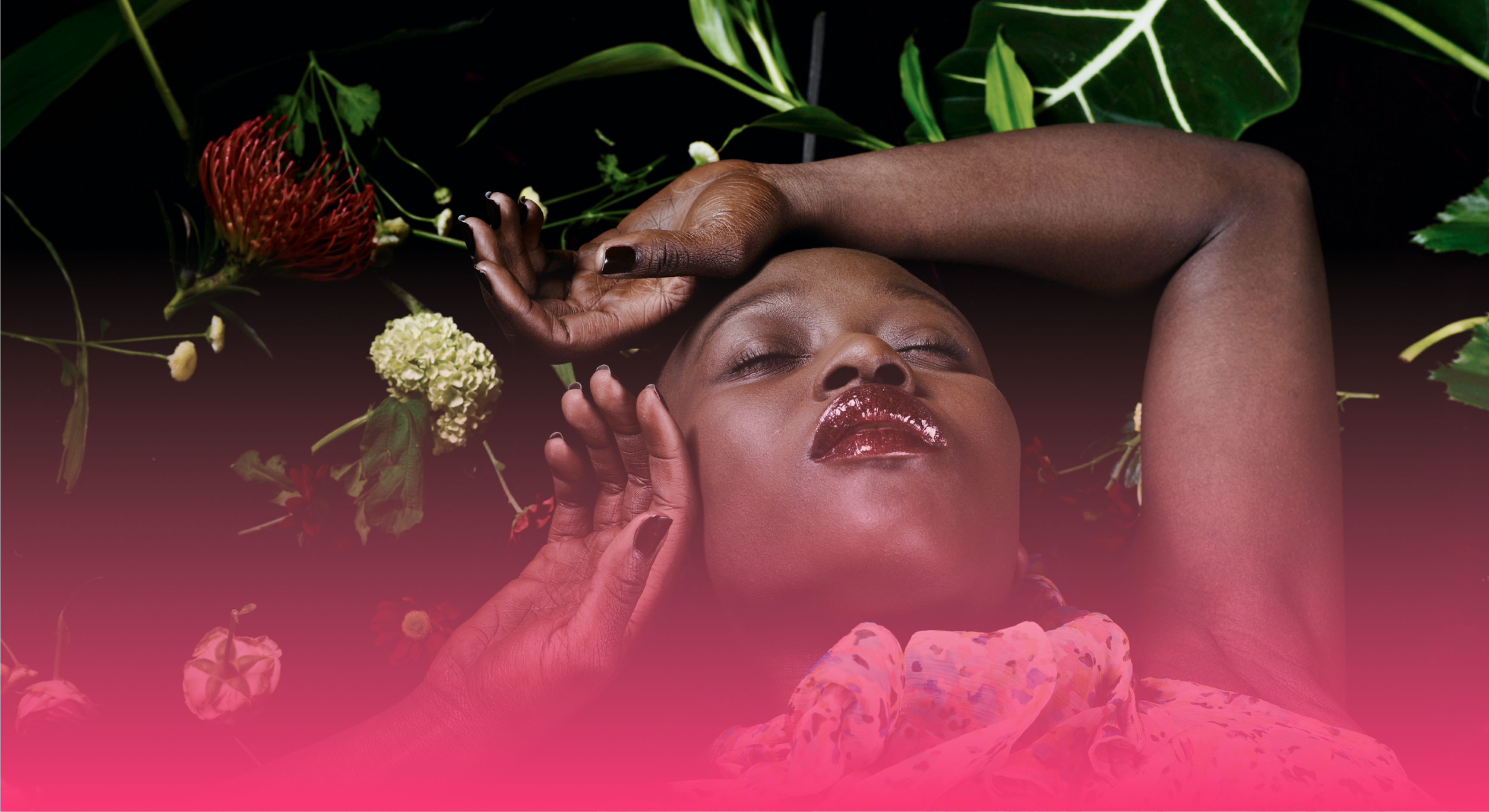Devi Brown: Practical Self-Care And Reclaiming Herbal Medicine
Devi Brown Invites Us To Glow Deeper Through Herbal Healing And Self-Reclamation

Self-care is maintenance—it’s really that simple. In this thoughtful conversation, Devi Brown brings clarity to the concept, guiding us to reframe self-care as something rooted in intention, not indulgence. The master well-being healer, teacher, and author truly embodies the spirit of the 2025 Melanin Beauty Awards. This year’s theme, Glow Deeper, invites us to slow down, reconnect with ourselves, and remember that true radiance begins within.
Beloved for her approachable, modern perspective on wellness, Brown bridges timeless healing traditions—from meditation to herbal medicine—with modern living. In the conversation below, Devi speaks on self-care, rediscovering ancestral healing, and shares some of her own at-home rituals that help her stay grounded in mind, body and spirit.
In today’s world, it seems like we’re always on, always on the go. How can we care for ourselves in a deeper, more intentional way, beyond just getting through the day?
We are just now learning how much stress we hold and the toll on our brains, our cortisol levels, our bones and joints—our physical nature. A lot of us walk around with pain, feeling sick, unwell, and foggy—and we don’t talk about it enough. We deserve to feel better inside of our bodies. To have lasting balance, we need to go a few layers deeper and spend time with ourselves—either internally, in our emotional world, or understanding our bodies. What hurts? Where do we hold emotion?
It’s time that we gain greater authority over our bodies and ourselves. That takes slowing down, it takes experimentation, and a willingness to care for yourself. It’s about empowering yourself to not have to rely on external help, external care, external validation—all the things that we as a society have been leaning into too heavily.
The idea of self-care is often sold as luxury—pampering, not practice. What does real self-care mean to you?
I look at self-care not as luxury, but as the scaffolding that upholds your purpose. It’s the fuel for us being able to not just survive, but live with a certain amount of joy in a world that is always changing and can be incredibly challenging for many of us.
We need to stop talking ourselves out of it from a luxury perspective, and understand that it is maintenance. Taking care of yourself is maintenance. It is the daily toll and tax for being alive on earth, and we need to take it seriously.
I lean into the pillars of self-care practice that revolve around emotional regulation. I think the more we get to know ourselves and our bodies, and what our inner suffering feels like, the easier it will be for us to find practices that best support our needs.

How can practices rooted in ancestral healing, like yoga and meditation, help restore balance in the modern world?
It’s important to lean into herbal medicine and the basic, foundational practices that have kept the human body alive for all the thousands of years that we’ve been here. That’s everything from understanding herbs to massage techniques to use on your body, stretching, walking, and eating clean and healthy. We’re very lucky to have Western medicine as well. The fact that we have these life-changing procedures, medications, and understanding of our bodies is an incredible luxury and privilege. I think it’s important that we don’t see one as replacing the other.
Can you share a few rituals that keep you grounded in your day-to-day?
My daily practice keeps me connected to a level of optimism and joy that can feel hard to come by these days. Sometimes it changes. Fundamentally, it always revolves around meditation. In this season, I’m meditating about one hour a day. I try to get in 30 minutes in the morning and 30 in the evening, but if I can’t, I’ll do closer to an hour in the evening.
Daily stretching morning and night is huge for me. I don’t always have time to do a full yoga practice, but I do the positions that work well for my body and support my chronic pain. And then biohacking. I live by my PEMF mat. I use infrared light everyday at some point. I try to cold plunge pretty regularly, and sauna. Everybody’s body is different. That isn’t recommended for all women, but it works really well for my needs and helps me with focus and inflammation.
What are some small but impactful rituals that readers can thread into their daily routines?
If you can do nothing else with the day, support yourself with tinctures and herbs in an easeful way in the morning, and do breathwork at some point during the day with your hand over your heart. Ground your feet in the grass once a day. These are things that take just quick moments. They do not need to be overthought, they do not need to be done perfectly. But if you can slow down enough to take a few breaths, it can absolutely change how you relate to your life and your capacity for discomfort, for stress, for what it takes to be alive right now.
How can we rethink self-care so it feels practical and accessible?
These are things you can do for free. All of this does not require having hours and hours of free time. I want to make this less trendy—less about having this facet of your identity that you wear—and just make it about tending to your needs everyday. Because self-care practices are about your longevity. Stretching is going to help your body, it’s going to give you endurance and improve your sleep. There are herbs that help with anxiety. There are practices, stretches, and meditations that help with chronic pain.

How have women practiced herbal medicine through the ages, and how can it empower us today?
I think it’s another way for us to reclaim our bodies and connect to our intuition and our sovereignty. For thousands of years, women were typically the healers of their family, the healers of their community. So they would know how to forage certain herbs or barks or different things from nature to help alleviate pain or bring healing. And so, I think for women, we’re just choosing to reclaim something that we have always done.
For those who are new to herbal medicine, where’s a good place to start?
My journey started right after I had my son—he’s seven now. I had severe inflammation. I live with chronic pain and I was getting sick a lot. I was trying to learn how to care for myself without always having to make a doctor’s appointment. The first place that I started was with tinctures, starting with things that I could easily incorporate into my day to day life. WishGarden Herbs was the first brand that I ever tried, so it’s really amazing and full circle, years later, to be in partnership with them now.
I recommend people try one at a time, so they can notice the effects. The fun in beginning a beautiful relationship with tinctures and herbs is the slowness that you can develop that relationship with, and the way it naturally begins to heighten your intuition. God has given us a garden of natural elements that help our human experience. Slowly playing alchemist with the products, I was able to understand my body differently.
How can mindset help us embody balance, wellness and self-love?
When we take time to tend to, excavate, and grow our inner world—then no matter what is happening around us, we have love for ourselves. So the more we live for ourselves, live for community, look to be at peace with who we are inside, and learn to meet our own needs and not project them onto other people—that’s where true joy is possible.
This interview has been edited for length and clarity.
Watch “Rituals We Keep” from the 2025 Melanin Beauty Awards and get a closer look at the routines that shape our beauty.













